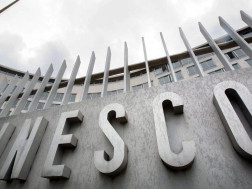A Rubens painting lost to history and misidentified for almost 300 years has re-emerged with the help of X-ray analysis and could now fetch up to £6 million ($7.7 million) at auction next month.
Flemish painter Peter Paul Rubens completed “Saint Sebastian Tended by Two Angels” more than 400 years ago.
His brushstrokes depict the story of the Roman soldier Sebastian, pierced by soldiers’ arrows and left to die after he converted to Christianity, before angels miraculously intervene.
It left a “forceful impression” on George Gordon, Sotheby’s co-chairman of old master paintings worldwide, when he first saw it at an exhibition.
“It’s the liveliness of the brushwork,” Gordon told CNN. “So it was easy to appreciate the speed and the vivacity with which it was painted, which seemed to me to speak very strongly for Rubens’ own brush.”
Likely commissioned by Italian nobleman and military commander Ambrogio Spinola, the painting was believed to have been completed around 1606-8 in Italy, or around 1609-10 in Antwerp once Rubens had returned to his hometown.
“Ambrogio Spinola was … a solider fighting a war of religion. He was a devout Catholic and that’s why you have this choice of saint,” Gordon said, “because when (Sebastian’s) faith became apparent and he refused to denounce it, he was condemned to be martyred … it would have been an appropriate subject for Spinola to commission.”
The Spinola family were great patrons and friends of Rubens, Gordon added.
The painting disappeared from recorded history in the 1730s as it passed out of the family name and through the female line of descent until it reappeared in Missouri in 1963. It was later acquired by the current owner at an auction in 2008, where it was misidentified as a painting by Laurent de la Hyre, a French artist.
X-ray analysis
X-ray analysis carried out in April revealed that the painting was the work of Rubens and, most importantly, the original version of the composition. Previously, that title had been held by a painting in the Corsini family collection, now hanging in the Galleria Corsini, Rome.
Analysis revealed changes beneath the final painting as Rubens sculpted and molded his design to perfection for the first time. Initially, for example, Rubens painted Saint Sebastian facing the other way while he omitted another arrow piercing the saint’s right thigh in the painting’s final form.
“Rubens was one of the most famous, greatest painters of the 17th century,” Gordon said, “and a painter who was really at the forefront of developing the Baroque as an art style.”
The artwork will go under the hammer in London on July 5 and is estimated to fetch between £4 million and £6 million ($5.1 million and $7.7 million), CNN reports.
















